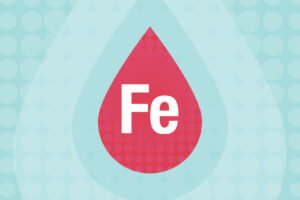Kristin Merrell had been living with psoriasis for nearly two years when she started experiencing joint pain. Not thinking much about it, she drove to Connecticut for a weekend getaway. By the time she reached her destination, she could barely walk.
Kristin, 46, of Brick, had been using topical prescription medication to treat psoriasis, a common autoimmune condition that attacks the skin, causing a red, itchy, uncomfortable rash. However, in about 30 percent of patients, it can progress to psoriatic arthritis, a chronic autoimmune disorder that can cause significant joint pain, stiffness, and swelling.
“Psoriatic arthritis is an extremely common—yet underdiagnosed—condition because often people don’t realize that the joint pain they’re experiencing is related to their rash,” explains Kristin’s physician, rheumatologist Mutahir Abidi, MD.
Psoriatic arthritis can affect anyone but usually impacts men and women in their 30s to 50s. It feels different than the regular aches and pains of getting older. Often, the condition is asymmetrical, affecting only one side or limb. Other times, it feels like overall joint stiffness. And, if someone has significant joint pain and stiffness but doesn’t have a rash, they still can have psoriatic arthritis if they have a family member with psoriasis or psoriatic arthritis. There is no cure for the condition, and it can cause permanent joint damage if left untreated.
FINE-TUNING TREATMENT
Psoriatic arthritis can be an “invisible illness,” meaning people with the condition can look well yet still be in pain. Before her condition was well managed, Kristin couldn’t do some of the activities she enjoyed, like watching fireworks at the beach with her friends or standing during a concert.
Over the last six years, she and Dr. Abidi have worked together to find the best treatment. Kristin first tried classic oral medications and then an injectable biologic medication, but neither worked as well as her current regimen, a 45-minute intravenous treatment she receives every two months. In fact, during Kristin’s most recent trip with friends to Walt Disney World, she was able to walk the park without the scooter she’s had to use in the past.
“There are many treatment options, so if one doesn’t work, we’ll find one that does,” Dr. Abidi explains.
“I have both good and bad days, but now I feel good most days,” Kristin says. “I’m thankful to have a doctor who listens and works with me.”
Learn more about rheumatology services at CentraState at centrastate.com/arthritis or 866-CENTRA7 (866-236-8727).





